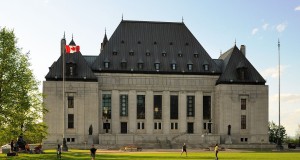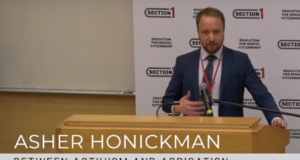So here we are, on the penultimate day of 2019. When this year began, I was not at all optimistic that the state of administrative law would improve with Vavilov’s release. But now I’m writing a third blog post on my gratitude! So never say surprises cannot happen… 14) Most alarming interpretations of Newfoundland Nurses repudiated. The Supreme Court’s decision ...
Read More »Yearly Archives: 2019
20 Things to Be Grateful For as Administrative Law Enters the 2020s – Part II
On Monday, I began the expansion of my list of twenty important – and positive – lessons from last week’s Vavilov decision. Now, I continue… 8) Access to justice can be facilitated by either reasonableness or correctness review depending on the circumstances. Defenders of reasonableness review frequently defend it on the basis that it facilitates access to justice. This is ...
Read More »20 Things to Be Grateful For as Administrative Law Enters the 2020s
Humans often don’t evaluate an experience in light of how good it is, but rather against how much it met/failed to meet/exceeded our expectations. And on that front, the Supreme Court’s decision in Minister of Citizenship and Immigration v Vavilov delivered in spades. After years of lamenting administrative law decisions coming from the Supreme Court, we have what looks like ...
Read More »Vavilov: A Step Forward
Today, the Supreme Court of Canada released its decisions in Vavilov and Bell/NFL. I have previously summarized the facts of these cases and analyzed them here (Vavilov) and here (Bell/NFL). Overall, today’s decisions (a 7-2 decision, Abella and Karakatsanis JJ concurring in result) are a net positive for the law of judicial review in Canada. The Court has done a ...
Read More »A Citizen’s Guide to the Rule of Law
The following is an excerpt from the author’s chapter in Constitutional Democracy Under Stress – A Time For Heroic Citizenship, Peter L. Biro (ed.), forthcoming from Mosaic Press, Oakville, Canada The Rule of Law entails the existence of a legal framework, binding at all times on the government and also on individuals in at least some of their interactions with ...
Read More »Easing the Stress on Constitutional Democracy
On October 6, 2019, I had the pleasure of speaking at a conference entitled “Constitutional Democracy Under Stress.” The conference was hosted by Section 1 and its founder, Peter Biro, who incidentally was one of my early mentors when I was a summer student. Mr. Biro, whose article for ARL on the Section 1 project can be read here, gathered ...
Read More »Toronto v Ontario: Correcting Results-Oriented Reasoning
It is not often that I can write a post in full agreement with a judicial decision. Perhaps this says something about my constitution. No matter, the Court of Appeal for Ontario’s recent decision in Toronto v Ontario is an admirable decision that strikes all of the right notes when it comes to interpreting overlapping Charter rights and the use ...
Read More »R. v. Stillman: A Missed Opportunity for Guidance on Stare Decisis
On July 26, 2019, in R. v. Stillman, 2019 SCC 40,the Supreme Court of Canada held by a 5-2 majority that a member of the Canadian Forces does not have the right to trial by jury for a “civilian” criminal offence for which they are charged under the National Defence Act (the “NDA”). Section 130(1)(a) of the NDA converts any ...
Read More »Constitutional Democracy Under Stress: Developing A Resistance To Unaccountable Government
One of the litmus tests of the legitimacy of any government that presides over a “democracy”, is the extent to which it is genuinely and adequately accountable to its citizens. While this may seem a trite observation, it has sadly become normal, within so-called democratic societies, to find governments that are wanting in the accountability department. In Ontario, for example, ...
Read More »Deconstructing Section 28
Professor Kerri Froc has written a thoughtful guest post for Double Aspect, in which she argues that s. 28 of the Charter is not merely an interpretive provision, but is rather a substantive and justiciable section in its own right. The implication if she is correct should not be understated. Section 28 states: Notwithstanding anything in this Charter, the rights ...
Read More » Advocates for the Rule of Law
Advocates for the Rule of Law









